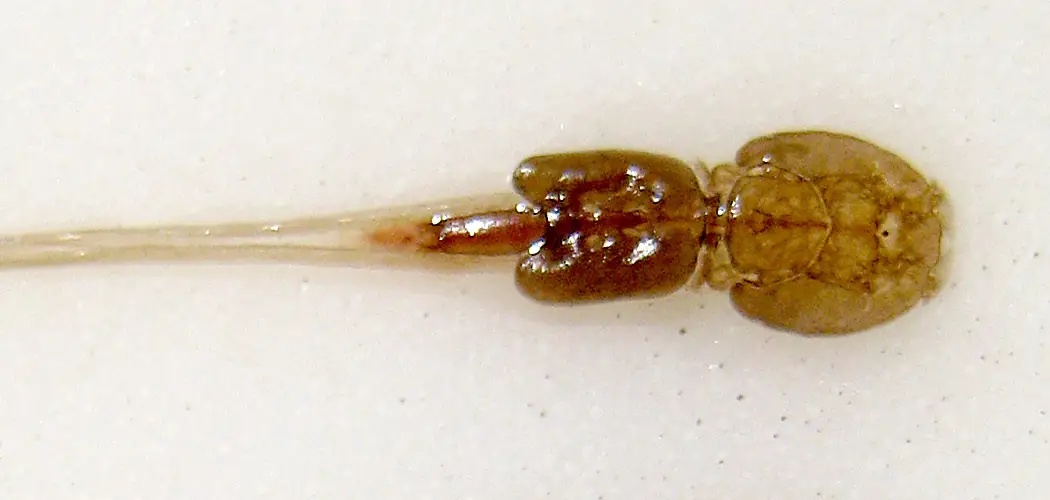Have you ever noticed the small, slimy creatures that hang around tide pools and moorhabs? These intriguing little critters are called sea lice (or “sea fleas”) and are found in many different parts of the world. But did you know that sea lice have a long history of spiritual significance for many cultures? In this blog post, we’ll explore some of the meaning behind these interesting little ocean dwellers and how they can guide us through life’s challenges today. Dive on in with us to learn more about louse spiritual meaning.
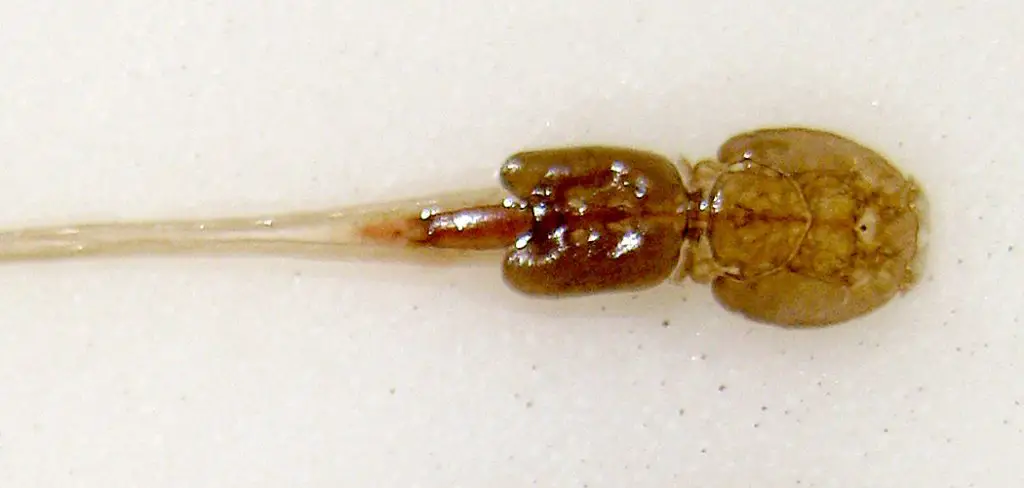
Sea Louse Symbolism and Meaning
Sea Louse Native American Symbolism
The orb weaver spider is a widely recognized symbol in Celtic mythology, representing different aspects of life depending on the particular tribe or region. It is known as a weaver of fate, capable of creating intricate webs that connect different elements of existence. Some believe that the spider represents the power of creation, as it can spin life from seemingly nothing.
This symbol is also associated with the cycles of life and death, as the spider builds its webs and traps prey in a never-ending cycle. Ultimately, the orb weaver spider is a fascinating and complex symbol that adds depth and meaning to the rich tapestry of Celtic folklore.
Sea Louse Eastern Symbolism
The sea louse, also known as the sea ghost, holds a special place in Eastern symbolism. In Chinese mythology, it is seen as a creature that can bring good luck and wealth to those who capture it. In Japan, it is believed to be a messenger from the gods, delivering messages of protection and well-being to those who see it. Despite its small size, the sea louse is considered a powerful symbol of resilience and adaptability, qualities that are highly valued in Eastern cultures. Whether seen as a lucky charm or a messenger from the divine, the sea louse is a creature that holds a deep significance in Eastern symbolism.
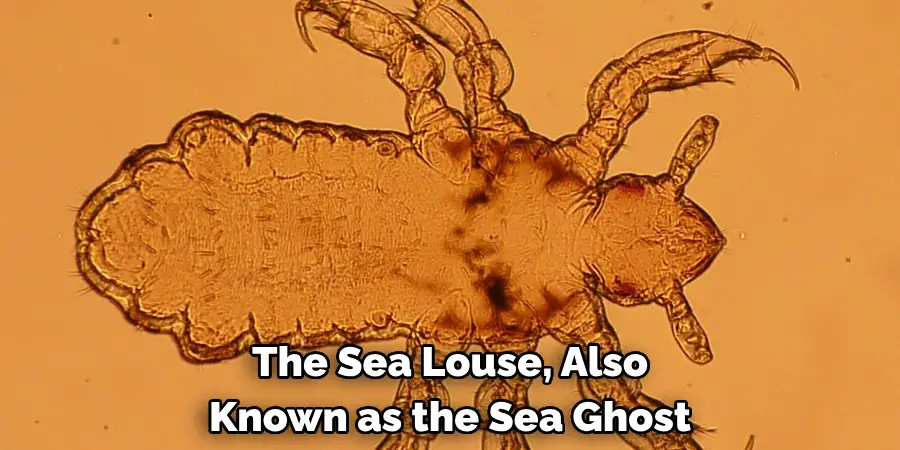
Sea Louse Christianity Symbolism
Sea lice have long been a symbol of Christianity due to their unique ability to transform. These tiny crustaceans start out as free-swimming larvae, but as they mature, they take on a new form and become parasitic creatures that latch onto fish and other marine animals. This transformation from one state to another is seen as a metaphor for the spiritual transformation that occurs in those who accept Christ.
Furthermore, the lice’s attachment to their host is symbolic of the Christian’s attachment to God, and the host’s dependence on the lice for survival is analogous to the Christian’s dependence on God for sustenance and eternal life. The sea louse may seem odd and unappealing, but its fascinating life cycle and the lessons it can teach us about faith and transformation make it a compelling choice for Christian symbolism.
Sea Louse Celtic Symbolism
The sea has always held a mystical allure for humans, inspiring countless myths and legends throughout history. One such symbol that has stood the test of time is the Sea Louse in Celtic mythology. This tiny crustacean was believed to be able to transform into a powerful sea monster and was revered for its ability to navigate the unpredictable tides of the ocean. In Celtic culture, the Sea Louse was seen as a symbol of resilience and adaptability, reminding us to weather life’s storms and embrace change. Today, the Sea Louse remains an enduring symbol of the raw power of nature and our own ability to thrive in even the harshest of environments.
Sea Louse African Symbolism
The sea louse is a small crustacean that may not seem significant at first glance, but it holds great importance in African symbolism. In many African cultures, the sea louse is seen as a transformative creature, representing the ability to adapt and evolve. Its ability to cling to its host also represents resilience and perseverance in the face of adversity. Some tribes believe that wearing a sea louse amulet or talisman can bring good luck and protection. How a tiny sea creature can hold such powerful symbolism and meaning in different cultures is fascinating.
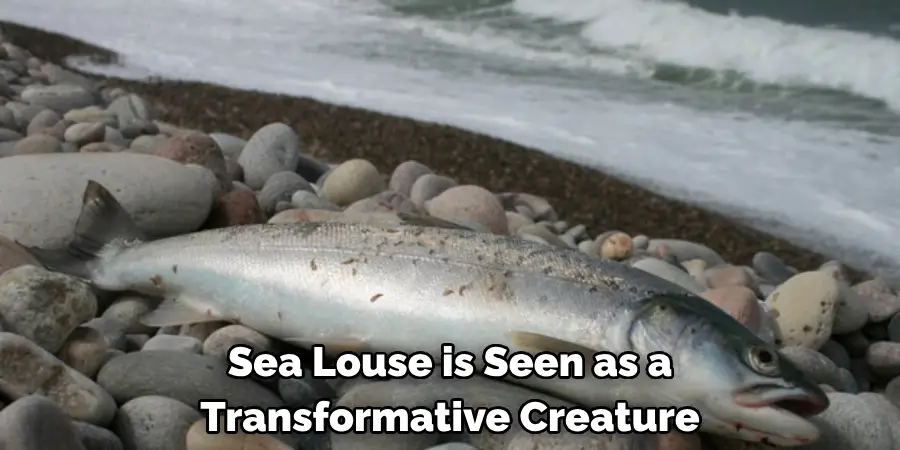
Sea Louse Spiritual Meaning
The sea louse is not a creature that typically comes to mind when one thinks of spirituality. However, the sea louse holds a significant spiritual meaning in certain cultures and belief systems.
Some people see the sea louse as a symbol of adaptability, as they have the ability to adjust to changing ocean temperatures. Others view the sea louse as a reminder to stay grounded and focused, as these tiny creatures remain attached to their host for their entire lives. Despite their small size, sea lice are a powerful reminder of the interconnectedness of all living things in our world and the importance of finding spiritual meaning in unexpected places.
Sea Louse in Dreams
Dreams can be both fascinating and mysterious. We often find ourselves in surreal situations that we can’t quite comprehend. Have you ever had a dream about a sea louse? These tiny crustaceans live amongst the seaweed on the ocean floor, and while they aren’t exactly cute or cuddly creatures, they can still make for an interesting dream symbol.
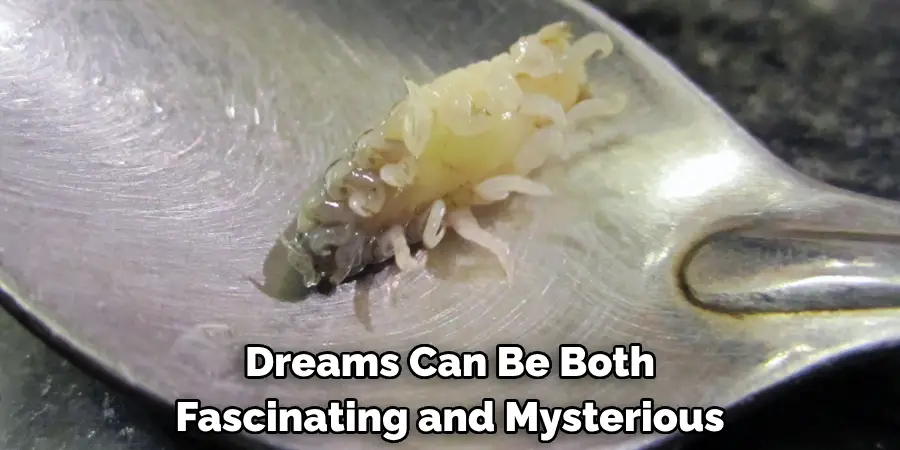
Maybe the sea louse represents your hidden fears or anxieties lurking beneath your subconscious’s surface. Alternatively, paying attention to the little things in life that often go unnoticed could be a reminder. Whatever the meaning may be, exploring the symbolism of your dreams can potentially unlock hidden truths about yourself and provide insight into your deeper thoughts and emotions.
Sea Louse Encounters and Omens
The open sea can be a mysterious and daunting place, filled with unexpected encounters and strange occurrences. One such encounter that sailors are all too familiar with is sea lice. These tiny creatures, also known as copepods, are often found clinging to the fur of marine mammals but sometimes make their way onto the skin of humans as well.
While they may seem harmless, superstitious sailors have regarded their presence as an omen of bad luck and misfortune. Some believe that encountering these tiny hitchhikers could signal a rough voyage ahead, while others view them as a sign of imminent danger. Regardless of one’s beliefs, there is no denying the eerie feeling one gets when one encounters these tiny creatures in the vast expanse of the open sea.
Sea Louse’s Meaning in Mythology and Folklore
The sea louse, a small crustacean that can often be found attached to the skin of a fish, may seem like an unlikely subject for myth and folklore. However, this tiny creature has played a role in the stories and beliefs of many cultures throughout history.
In some Native American legends, sea lice were seen as symbols of renewal and growth, while in Norse mythology, they were associated with loyalty and friendship. Even today, the sea louse continues to hold significance for some, with some believing that the creature can bring good luck or ward off evil spirits. Despite its small size, the sea louse has left a lasting mark on the world of mythology and folklore.
Sea Louse Totem Animal
In Native American cultures, totem animals hold great significance and are believed to be connected to an individual’s spirituality and life path. Among these totem animals is the sea louse, which may seem like an unlikely choice at first glance. However, these small creatures that inhabit the ocean depths are known for their hardworking and industrious nature, tirelessly clinging to their hosts and keeping them clean and healthy.
As a totem animal, the sea louse represents the importance of diligence and perseverance in your pursuits and how seemingly small actions can significantly benefit you and those around you. Let the sea louse guide you on your spiritual journey toward meaningful purpose and fulfillment.
Sea Louse Tattoo Meaning
Sea louse tattoos have become quite popular in recent years, but what is the meaning behind them? These tattoos typically depict a small crustacean with long antennae and a segmented body. Some people choose a sea louse tattoo because they find the creature intriguing or visually appealing, but there is a deeper significance for others.
Sea lice are a common threat to fish in the ocean, and so for some people, a sea louse tattoo represents resilience and the ability to overcome obstacles. Others see the sea louse as a symbol of adaptability, as these tiny creatures can thrive in various environments. Whatever the motivation behind a sea louse tattoo, there is no denying that these tiny creatures have a powerful presence and make for a unique and eye-catching design.
Sea Louse Spirit Animal
The sea louse may not be the most well-known creature in the animal kingdom, but it can be a powerful spirit animal for those who feel a connection to it. With its sleek and agile body, the sea louse represents adaptability and resilience in the face of challenges.
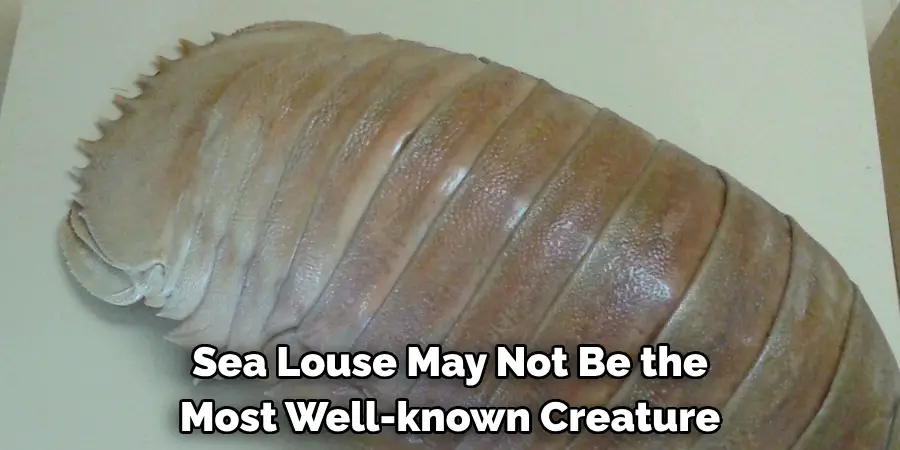
This tiny crustacean thrives in some of the harshest environments on earth, reminding us that we, too, can find strength in the midst of turmoil. The sea louse is also a symbol of community and cooperation, as it often forms large groups to protect itself from predators. So if you find yourself drawn to the sea louse, take comfort in its tenacity and ability to work together towards a common goal.
Conclusion
Sea lice offer a reminder in life to be brave and take risks. They encourage us to quote the verse from the Bible, “Seek the truth, and you will find it.” Without taking risks to uncover the truth behind our lives, we will never know what we can achieve. Their symbolic messages allude to optimism, courage, and growth.
There is no shortage of facts one can learn about sea lice, making it an exciting subject for those seeking new answers about themselves and the greater universe around them. The sea louse spiritual meaning offers valuable insight into our lives by teaching us to remain brave and persevere despite all odds.
You Can Check It Out to Termite Spiritual Meaning, Symbolism and Totem

